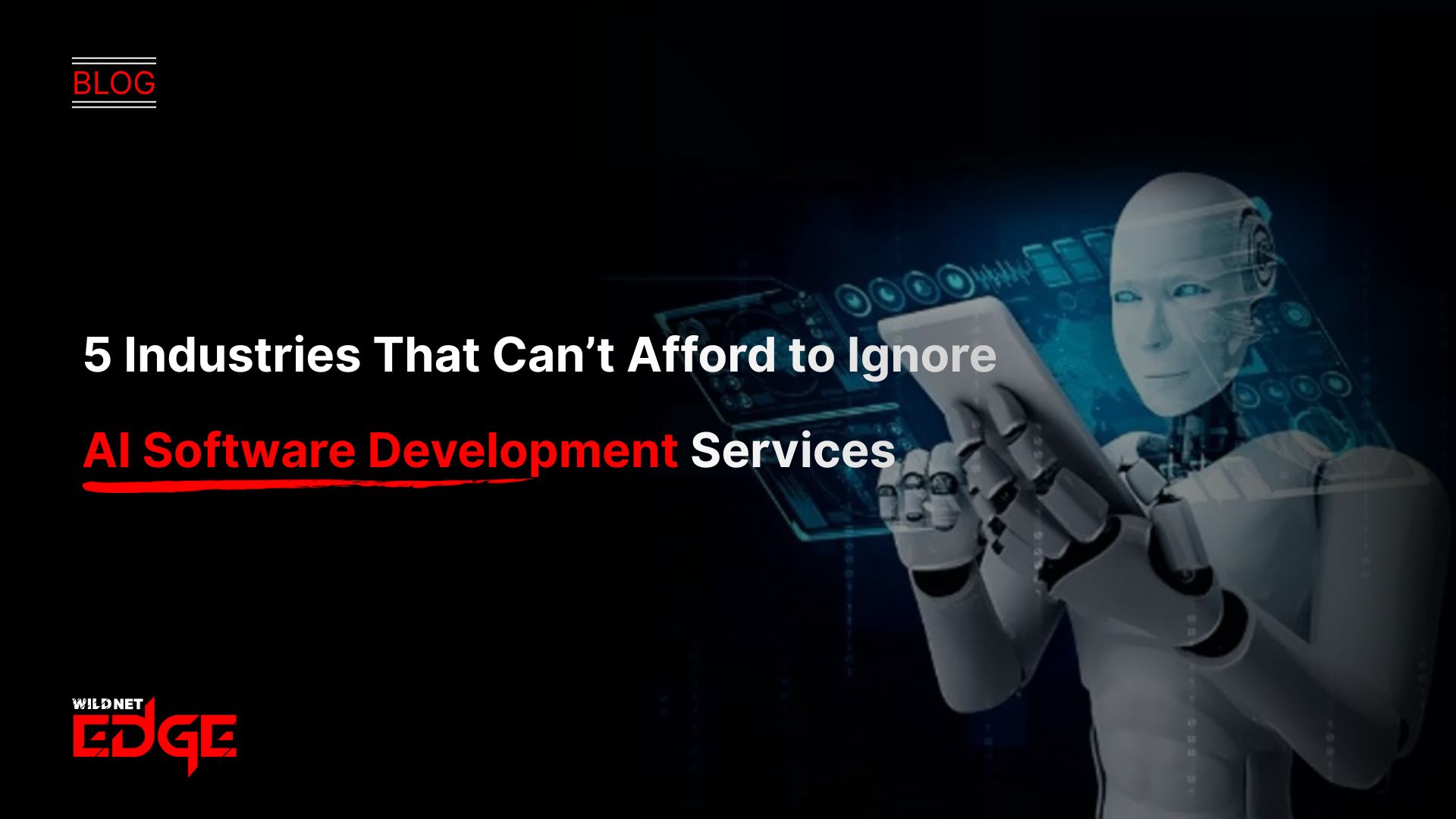Are you struggling to analyze your business data effectively? You’re not alone. Many companies hesitate to adopt Tableau consulting due to uncertainty about its benefits. Can it really improve your decision-making? The answer lies in understanding a roadmap for implementing Tableau effectively. This guide will walk you through essential steps, helping you leverage Tableau consulting for better insights and ROI.
Understanding Tableau Consulting KPIs
When it comes to successful Tableau consulting, one crucial aspect is measuring performance through Key Performance Indicators (KPIs). These indicators allow businesses to track their progress, assess their strategy, and ultimately achieve their goals.
Defining Key Performance Indicators for Tableau
Defining the right KPIs for Tableau involves understanding the objectives of your analytics projects. Common KPIs in Tableau consulting include metrics related to data accuracy, reporting speed, user engagement, and the level of insights derived from the analysis. Here are some examples:
- Data Accuracy: Measure the percentage of accurate data in your reports. The higher the number, the better your data integrity.
- Report Generation Time: Track how long it takes to generate scheduled reports. A reduction in time can indicate improved efficiency in your analytics process.
- User Adoption Rate: Monitor how many employees utilize Tableau regularly, which reflects the success of training and implementation efforts.
- Insight Utilization: Assess whether the insights derived from your Tableau dashboards lead to actions or decisions within a specific timeframe.
To ensure the KPIs align with your business goals, involve key stakeholders in the discussion. This collaboration will lead to a well-rounded definition of KPIs that encompass multiple dimensions of your business operations.
How to Measure Success with Tableau Consulting
Measuring success in Tableau consulting is about more than just number crunching; it involves continual improvement and adaptation. Here’s how you can effectively measure success:
- Set Clear Objectives: Establish what success looks like for your initiative. This might vary from increased sales to improved customer loyalty.
- Regularly Review KPIs: Continuously track the KPIs you’ve set earlier. Daily dashboards in Tableau can help visualize this data in real time.
- Solicit Feedback: Obtain qualitative feedback from users about the tools and reports. Their perspectives will provide insights into areas needing improvement.
- Benchmark Against Industry Standards: Research how similar companies are using Tableau. This can provide context to your KPI performance and highlight areas for growth.
- Make Data-Driven Adjustments: As you gather insights and outcomes from your KPIs, adapt your strategies. This iterative process ensures your Tableau consulting efforts stay relevant and impactful.
By defining and measuring these KPIs effectively, you can set a solid groundwork for your Tableau consulting initiatives, maximizing their value.
Establishing a ROI Framework with Tableau Consulting
Establishing a robust Return on Investment (ROI) framework with Tableau consulting is essential for validating the effectiveness of your analytics strategies.
Benefits of a Clear ROI Framework
A clear ROI framework offers various benefits:
- Focuses Strategic Decisions: Knowing your ROI helps in making informed decisions about resource allocation and project prioritization.
- Drives Accountability: With a defined ROI, stakeholders are held accountable for performance and outcomes, leading to more dedicated efforts.
- Justifies Investments: It aids in justifying investments to upper management, illustrating how Tableau consulting contributes to attaining business targets.
- Identifies Improvement Areas: ROI measures can pinpoint which aspects of your analysis are underperforming, allowing for targeted adjustments.
To establish an effective ROI framework, consider structuring it around a formula: [ ROI = \frac{\text{Net Profit}}{\text{Cost of Investment}} \times 100 ] Calculating ROI in the context of Tableau includes quantifying the benefits of decisions made using analytic insights.
How Tableau Enhances ROI Analysis
Tableau plays a significant role in enhancing ROI analysis by providing a platform that makes it easier to visual intricate data relationships. Here’s how:
- Visualization Capabilities: Tableau’s visual tools allow for easy identification of trends and outliers that can affect ROI positively or negatively.
- Real-Time Data Access: With real-time updates, organizations can respond swiftly to market changes, improving decision-making processes.
- Scenario Analysis: Tableau allows businesses to experiment with different scenarios through what-if analyses, enabling them to predict the potential ROI of various strategies before execution.
- Data Integration: It integrates well with other databases and data sources, enabling comprehensive analysis that takes into account all variables affecting ROI.
By effectively implementing Tableau within your ROI framework, you can substantially enhance the measurement and analysis of your business investments, leading to deeper insights and strategic advantages.
Choosing the Right Software Development Company for Tableau
Selecting an appropriate software development company for your Tableau consulting can make or break your analytics initiatives.
Qualities of a Good Tableau Consulting Partner
The right software development company will have characteristics that align with your business needs. Here are some qualities to consider:
- Experience with Tableau: Look for a company with a proven track record in Tableau consulting. They should be able to provide case studies or examples of past projects.
- Technical Expertise: The consulting partner should possess strong technical skills in Tableau as well as data visualization best practices.
- Tailored Solutions: They should offer customized approaches tailored to meet your unique business requirements instead of a one-size-fits-all solution.
- Ongoing Support: A good partner will provide continuous support after the initial deployment, ensuring your business can adapt to changing needs.
- Client Testimonials: Seek feedback from past clients to ascertain the reliability and effectiveness of the partner’s services.
Case Studies of Successful Collaborations
Exploring case studies can shed light on how other businesses successfully leveraged Tableau consulting through software development partnerships. For instance, a retail management company faced challenges in analyzing customer purchase patterns. By collaborating with a specialized Tableau consulting partner, they implemented dashboards that integrated sales data, demographic information, and inventory levels. As a result, the company reported a 30% improvement in targeted marketing campaigns leading to a 15% increase in sales within six months.
Another case involved a healthcare provider that struggled with patient data management. By teaming up with a software development company, they integrated Tableau with their existing patient management systems. This integration enhanced reporting speed and accuracy, resulting in a 25% reduction in operational costs due to improved resource allocation.
These examples illustrate how selecting the right software development company can transform your Tableau consulting experience and yield significant operational improvements.
Transforming Your Business with Mobile App Development Company Insights
In today’s data-driven world, integrating Tableau with mobile applications has become increasingly paramount for businesses who want to leverage data insights on the go.
Integrating Tableau with Mobile Applications
Integrating Tableau into mobile applications can enhance accessibility and improve decision-making processes. Here’s how to do it effectively:
- Choose the Right Development Company: A good mobile app development company will understand how to optimize Tableau dashboards for mobile use, ensuring a seamless experience.
- Responsive Design: Ensure that the Tableau reports and dashboards adapt to different screen sizes for better usability on tablets and smartphones.
- User Authentication: Implement secure user authentication methods in your mobile applications, giving users secure access to sensitive business data while maintaining usability.
- Offline Access: Consider enabling offline capabilities, allowing users to access cached data and critical insights even without internet connectivity.
- Performance Optimization: Work with your mobile app development company to enhance loading times and interactivity, ensuring users can swiftly navigate Tableau dashboards.
By effectively integrating Tableau with mobile solutions, organizations can transform how they access and interact with data, fostering a culture of data-driven decision-making on all fronts.
User Experience: Importance in Mobile App Development
User experience (UX) is critical when developing mobile applications that utilize Tableau data. Poor UX can lead to lower adoption rates, while an excellent UX can drive engagement. Here are principles to maintain:
- Intuitive Navigation: Create a clear, straightforward navigation structure that allows users to find the data they need easily.
- Actionable Insights: Ensure that the graphical representations and dashboards aren’t just visually appealing but also provide actionable insights at a glance.
- Feedback Mechanisms: Integrate features allowing users to provide immediate feedback about their experience, enabling ongoing improvements.
- Collaboration Features: Encourage user collaboration through shared insights and reports, which can enrich discussion and strategic planning.
Prioritizing user experience when developing mobile applications linked to Tableau fosters higher engagement rates while providing meaningful insights that empower business leaders.
Step-by-Step Implementation of Tableau Consulting
With a comprehensive understanding of your KPIs, ROI framework, and useful partnerships established, it’s time to implement Tableau consulting through a systematic approach.
Initial Assessment and Planning
Before diving into the implementation of Tableau, conduct a thorough assessment to identify your current analytics landscape, which includes:
- Data Inventory: Review existing data sources, identifying where the data resides and whether it’s accurate and updated.
- Business Goals: Align your Tableau goals with the overarching business objectives. This step ensures that all analytics efforts drive towards a unified aim.
- Stakeholder Involvement: Engage key stakeholders in discussions to gather input, ensuring all perspectives are taken into account.
- Establishing a Timeline: Develop a realistic timeline for the implementation process, breaking down tasks into manageable phases.
- Resource Allocation: Identify the resources necessary for the deployment, including personnel, software, and training requirements.
By conducting an initial assessment and planning phase, businesses can set the stage for a smoother implementation of Tableau consulting.
Training Your Team on Tableau Tools
Training is a vital aspect of any successful Tableau consulting implementation. To equip your team with the necessary skills:
- Hands-On Workshops: Organize hands-on workshops led by experienced Tableau trainers. Interactive sessions foster better learning through practical application.
- Online Learning Materials: Provide access to online training modules and tutorials, allowing team members to learn at their own pace.
- User Guides and Documents: Distribute clear user guides that illustrate how to navigate Tableau tools effectively.
- Encourage Experiments: Invite team members to experiment with data in Tableau, encouraging curiosity and creative solutions.
- Foster a Data-Driven Culture: Promote discussions around analytics and data within your teams, which will increase comfort and proficiency with Tableau tools.
By ensuring your team is well-trained and confident in using Tableau, you are setting yourself up for long-term success and maximizing the return on your consulting investment.
Common Challenges in Tableau Consulting
Even with a structured plan, organizations may face challenges during the Tableau consulting implementation process. Recognizing these challenges and planning for them is essential.
Technical Issues and Their Solutions
Technical difficulties may arise during Tableau consulting implementation, impacting the smooth adoption of the tool:
- Data Connectivity: Problems may occur with data source connections. To mitigate this, keep your data connections organized and create protocols for regular checks to ensure data integrity.
- Performance Delays: Slow performance can frustrate users. Optimize dashboards by limiting the amount of data rendered at once and aggregating data as needed.
- Security Concerns: Understand the importance of data security in Tableau. Implement role-based access control to safeguard sensitive information.
- Browser Compatibility: Ensure that your dashboards perform consistently across popular browsers. Regularly update and test your Tableau configurations to identify and resolve compatibility issues.
By addressing these common technical challenges early and having corresponding solutions in place, organizations can facilitate a smoother adoption of Tableau consulting.
Overcoming Resistance to Change
Resistance to change is a natural human tendency that can hinder the effective implementation of Tableau:
- Communication: Clearly communicate the benefits of Tableau to employees, emphasizing how it can simplify their workload and improve outcomes.
- Championing Change: Identify change champions within the organization who can promote Tableau’s advantages and encourage others to adopt it.
- Engagement Sessions: Schedule engagement sessions where employees can voice their concerns and share suggestions for enhancing their Tableau experience.
- Celebrate Small Wins: Highlight and celebrate early successes brought about by Tableau. Recognition can increase motivation among teams and demonstrate the tangible benefits of the tool.
By proactively addressing resistance with targeted strategies, companies can ensure their transition to Tableau consulting is more successful and well-received by their teams.
Future Trends in Tableau Consulting
As data analytics continues to evolve, staying updated on trends in Tableau consulting becomes essential to maintain a competitive edge.
AI and Machine Learning in Tableau Outcomes
Artificial Intelligence (AI) and Machine Learning (ML) are revolutionizing the way data is analyzed within Tableau. Some trends include:
- Predictive Analysis: Tableau is increasingly integrating predictive modeling capabilities, allowing users to anticipate trends and make more informed decisions.
- Automated Insights: AI can generate automated insights from data queries, providing actionable recommendations based on historical and real-time data trends.
- Intelligent Data Prep: Tableau will leverage ML to enhance data preparation processes, minimizing manual input and streamlining workflows.
- Enhanced User Experience: The incorporation of AI can offer users tailored experiences, recommending specific visualizations or analyses based on their previous interactions.
Keeping abreast of these advancements will empower organizations to utilize Tableau effectively and leverage its capabilities fully.
The Growing Importance of Data Visualization
Data visualization is no longer a luxury; it’s a necessity. As more organizations adopt data-driven strategies, the following trends in data visualization will shape the future:
- Storytelling with Data: The ability to narrate insights through compelling visualizations will become more vital, helping businesses convey complex concepts clearly and effectively.
- Real-Time Data Visualization: The demand for real-time insights will grow, encouraging organizations to invest in solutions that optimize data visualization speed.
- Custom Visualization Tools: Organizations will increasingly customize visualizations that cater to specific user needs, enhancing relevancy and engagement.
- Integration with Emerging Technologies: The future of Tableau will likely include integrations with AR and VR technologies, transforming how data experiences are shared and understood.
Companies that keep a pulse on these trends in Tableau consulting will not only harness the power of data but also set themselves up for sustained success in a competitive landscape.
Conclusion
In summary, effective Tableau consulting involves understanding KPIs, establishing a robust ROI framework, and collaborating with proficient partners. By following a structured implementation roadmap, organizations can harness the full potential of Tableau to drive deeper insights and better decision-making. At Wildnet Edge, an AI-first company, we bring expertise to your Tableau initiatives, ensuring a seamless experience for your data analytics needs. Ready to transform your data analytics strategy? Let’s optimize your processes together.
FAQs
Tableau consulting provides actionable insights, enhances data visualization, and supports better decision-making, helping organizations unlock the full potential of their data.
You can define KPIs by identifying your project goals, measuring performance against defined benchmarks, and adjusting strategies accordingly to align with your business objectives.
A ROI framework outlines how investments in Tableau will yield measurable benefits, often focusing on increased efficiency and cost savings, using a net profit versus cost of investment formula.
A skilled software development company can tailor Tableau tools to meet specific business needs, streamline integration with existing systems, and provide ongoing support, maximizing the potential of your consulting efforts.
A mobile app development company can help integrate Tableau visualizations into mobile applications, enhancing accessibility, user engagement, and data-driven decision-making wherever your team is.

Managing Director (MD) Nitin Agarwal is a veteran in custom software development. He is fascinated by how software can turn ideas into real-world solutions. With extensive experience designing scalable and efficient systems, he focuses on creating software that delivers tangible results. Nitin enjoys exploring emerging technologies, taking on challenging projects, and mentoring teams to bring ideas to life. He believes that good software is not just about code; it’s about understanding problems and creating value for users. For him, great software combines thoughtful design, clever engineering, and a clear understanding of the problems it’s meant to solve.
 sales@wildnetedge.com
sales@wildnetedge.com +1 (212) 901 8616
+1 (212) 901 8616 +1 (437) 225-7733
+1 (437) 225-7733















 ChatGPT Development & Enablement
ChatGPT Development & Enablement Hire AI & ChatGPT Experts
Hire AI & ChatGPT Experts ChatGPT Apps by Industry
ChatGPT Apps by Industry ChatGPT Blog
ChatGPT Blog ChatGPT Case study
ChatGPT Case study AI Development Services
AI Development Services Industry AI Solutions
Industry AI Solutions AI Consulting & Research
AI Consulting & Research Automation & Intelligence
Automation & Intelligence













